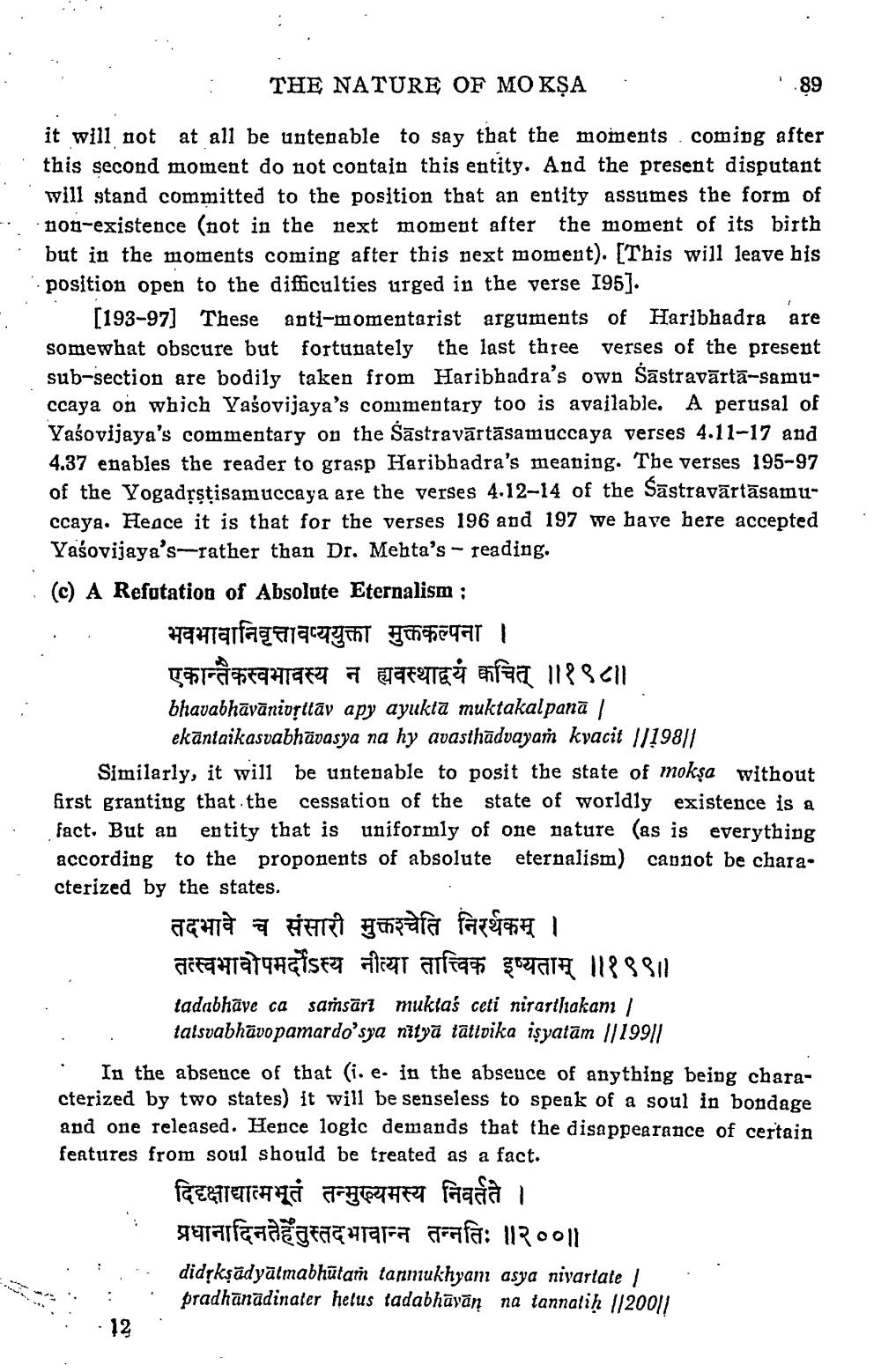________________
THE NATURE OF MO KSA .
89
-
it will not at all be untenable to say that the moments coming after this second moment do not contain this entity. And the present disputant will stand committed to the position that an entity assumes the form of non-existence (not in the next moment after the moment of its birth but in the moments coming after this next moment). [This will leave his . position open to the difficulties urged in the verse 195].
[193-97] These anti-momentarist arguments of Haribhadra are somewhat obscure but fortunately the last three verses of the present sub-section are bodily taken from Haribhadra's own Šāstravārtā-samuccaya on which Vasovijaya's commentary too is available. A perusal of Vasovijaya's commentary on the Šāstravārtāsamuccaya verses 4.11-17 and 4.37 enables the reader to grasp Haribhadra's meaning. The verses 195-97 of the Yogadệstisamuccaya are the verses 4.12–14 of the Sāstravārtāsamuccaya. Hence it is that for the verses 196 and 197 we have here accepted Yašovijaya's-rather than Dr. Mehta's – reading. (c) A Refutation of Absolute Eternalism ;
भवभावानिवृत्तावप्ययुक्ता मुक्तकल्पना । एकान्तकस्वभावस्य न ह्यवस्थाद्वयं कचित् ॥१९८॥ bhavabhāvānivsttāv apy ayuktā muktakal panā /
ekāntaikasvabhāvasya na hy avasthādvayas kvacit ||198| Similarly, it will be untenable to posit the state of mokşa without first granting that the cessation of the state of worldly existence is a fact. But an entity that is uniformly of one nature (as is everything according to the proponents of absolute eternalism) cannot be characterized by the states.
तदभावे च संसारी मुक्तश्चेति निरर्थकम् । तत्स्वभावोपमर्दोऽस्य नीत्या तात्त्विक इष्यताम् ॥१९९॥ tadabhāve ca saṁsārt muktaś ceti nirarthakan /
tatsvabhāvopamardo'sya nityā tātīvika isyatām ||19911 . In the absence of that (i. e. in the absence of anything being characterized by two states) it will be senseless to speak of a soul in bondage and one released. Hence logic demands that the disappearance of certain features from soul should be treated as a fact.
दिक्षाद्यात्मभूतं तन्मुख्यमस्य निवर्तते । प्रधानादिनतेहेतुस्तदभावान्न तन्नतिः ॥२०॥
didykşādyātmabhūtam tarmukhyam asya nivartate / . : : : pradhanādinater helus tadabhāyān na tannaliḥ 1/2001| . .1?




